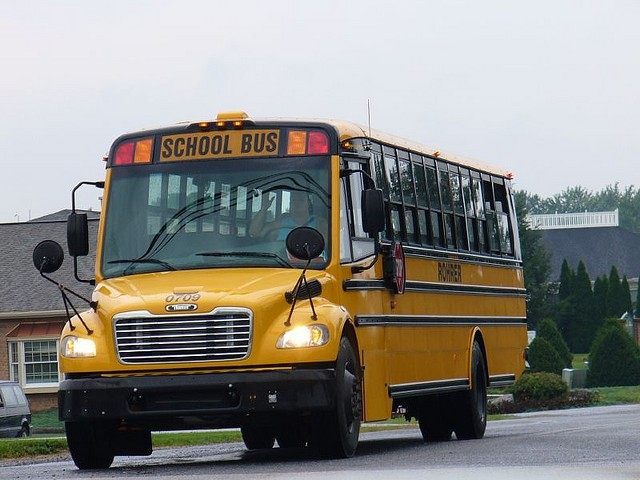Senate Democrats are fighting among themselves over whether the federal government should exert even more control over education in order to make a stronger statement on civil rights and education for minority children, or back off due to the testing frenzy such federal control has already produced.
According to Politico:
The Senate bill [Every Child Achieves Act], which has support from many Democrats who consider themselves strong proponents on civil rights, has lost the support of the county’s [sic] largest civil rights coalition, the Leadership Conference on Civil and Human Rights. The group wants changes to the bill in the form of amendments, which are being hashed out behind closed doors by Democrats including Sen. Elizabeth Warren (D-Mass.). Warren and others are clear — they want stronger language requiring states to track performance of poor and minority students and do something to improve schools that are falling down on the job.
“Politically, it’s cannibalism,” says Charles Barone, director of policy for Democrats for Education Reform, a group that supports annual testing.
The battle within the Democrat Party over education will be coming to a head shortly as both the House and Senate are considering their rewrites this week of NCLB – the current version of the Elementary and Secondary Education Act (ESEA) which was first signed into law by President Lyndon Johnson.
Many grassroots groups of parents and teachers — Republicans and Democrats, liberals and conservatives among them — have become increasingly involved in education issues over the past several years due to the controversial Common Core standards and their associated tests and student data collection. Will Democrat members of Congress move ahead with an even stronger federal hold on education with further restrictions on schools for what they perceive — from their perch in Washington, D.C. — to be a benefit to minority children, or will they go with their constituents who want their children to have relief from the flood of standardized testing and data collection federal control requires?
It’s worth noting that in the half-century since the ESEA was passed as part of Johnson’s “War on Poverty,” billions of dollars have been spent – by both Democrat and Republican administrations – on education and so-called “helpful” programs for “disadvantaged” children, and yet Democrats are still fighting for more federal control and federal programs and subsidies in order to “close the achievement gap.”
The Senate bill does not have the support of the Obama administration, though no veto threat has been issued as has been over the House NCLB rewrite, dubbed the Student Success Act.
Heritage Action for America is urging Senators to vote “no” on the Every Child Achieves Act (ECAA), which was introduced by Sen. Lamar Alexander (R-TN), who chairs the Senate committee that oversees education, and ranking member Sen. Patty Murray (D-WA).
“[T]he 792-page bill represents a missed opportunity to show a clear contrast with the progressives’ failed big-government education agenda,” states Heritage Action.
Lindsey Burke of the Heritage Foundation observed in December four critical problems with the Senate bill (S. 1177):
- 1177 does not eliminate programs or reduce spending.
- 1177 does not eliminate all the burdensome federal mandates.
- 1177 does not enable states to completely opt out of the programs that fall under No Child Left Behind.
- 1177 does not provide states the option of full Title 1 portability.
Similarly, writing at Townhall, Jane Robbins, senior fellow of American Principles Project, and Heidi Huber, founder of Operation Opt Out Ohio, observe that ECAA “maintains NCLB’s requirement of administering annual assessments in English and math in grades 3 through 8 and once in high school” and actually “adds language that effectively encourages the states to lower the boom on noncompliant students and parents.”
“ECAA also continues to mandate that results of high-stakes assessments be used in state accountability systems,” write Robbins and Huber, noting that the measure “requires states to use assessment scores, progress toward readiness for ‘college and the workforce,’ and high-school graduation rates as a ‘substantial’ portion of a school’s grade.”
“So not only must states ensure 95% participation in the assessments, they must use the results to rate their schools,” the authors point out.
Other amendments to the ECAA include the establishment of a new federally funded preschool program, and federal childcare subsidies.
As the Heritage Foundation observed in June, the federal government already runs 45 early learning and childcare programs, the largest of which is the Head Start program – which costs taxpayers $8 billion and has a rather deplorable track record.
In February of 2013 the Obama Department of Health and Human Services (HHS) published a study that found that students who participate in the Head Start program actually fare worse, in some ways, than students who do not.
The large-scale study found that children who participated in the Head Start program actually did worse in math and had more problems with social interaction by the third grade than children who were not in the federally funded program.
Furthermore, teacher reports provided as part of the study demonstrated strong evidence of the Head Start program having an unfavorable impact on the incidence of children’s emotional symptoms, and possible effects on both ability to have close relationships and positive relationships with teachers. The study concluded that, even when some positive effects of participation in Head Start are found in preschool age children, those effects disappear once children enter early elementary school.
“Now is the time for Congress to restore federalism in education, empower parents and students instead of bureaucrats and unions, and remove archaic obstacles that have prevented true opportunity for all,” Heritage Action urges.

COMMENTS
Please let us know if you're having issues with commenting.